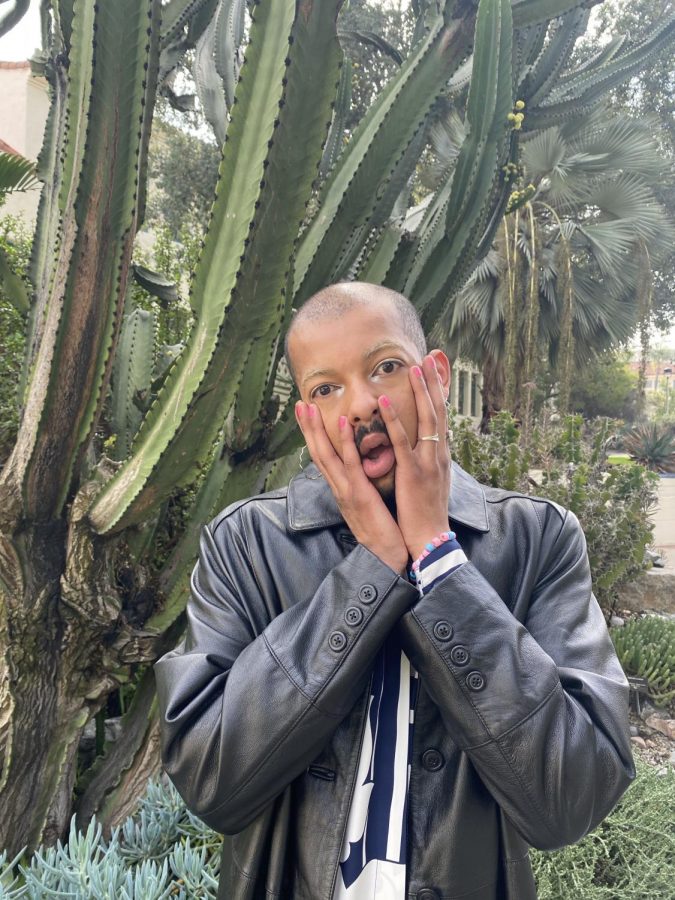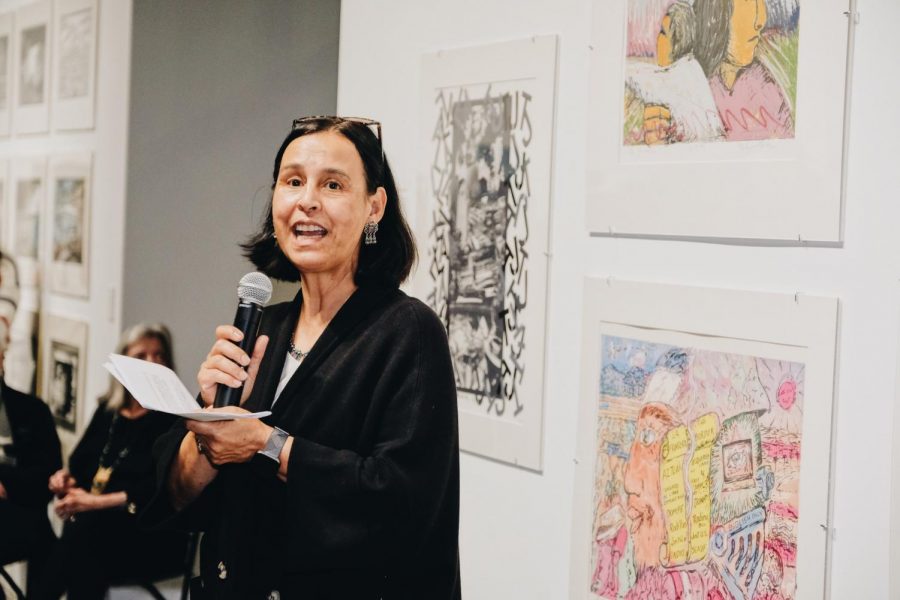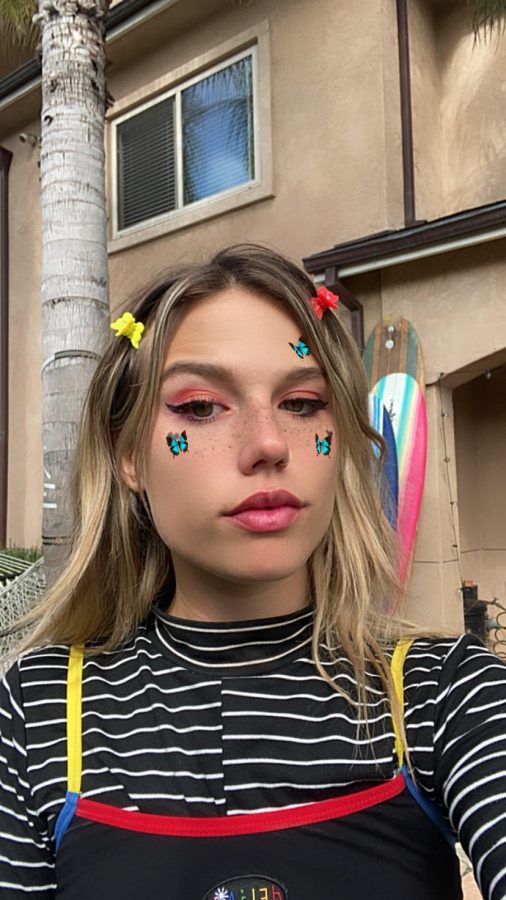Black History Month is a special time to reflect, appreciate and celebrate the many achievements of black figures throughout history and those who are trailblazing today. An overwhelming sense of pride is felt among the black community on campus especially during this time.
In honor of Black History Month, students talked to The Daily Aztec to share what black pride means to them and how their identity as a black person has impacted their experience at San Diego State.
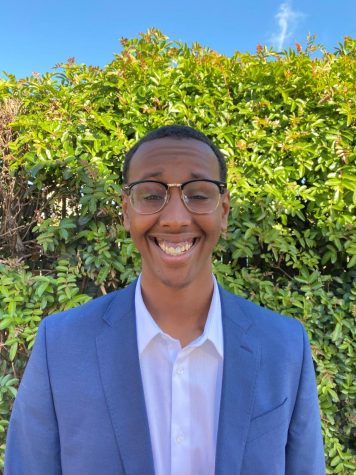
Mohamed Buul, junior africana studies major
“Black pride to me is a way of love and passion for me. Growing up and having a strong father and mother in the family gave me a great upbringing. Also, coming from a good family and education, you really learn a lot about the things that come with being a black person. Whether that be learning about Malcolm X or Martin Luther King.
At first when I came to (SDSU), I felt a little lost before I found the Black Resource Center. But when I found the Black Resource Center, I found black women and men who are very highly educated and they gave me that support. It’s a home away from home and I love it.
Black history is very important to me because I went to an all-white, private elementary school, so I wasn’t able to experience what black history month was like at an educational institute like San Diego State. Being here and seeing how Black History Month is taken as very important, is really heart-warming to see.”
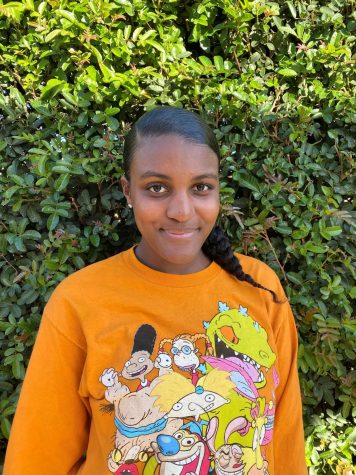
Alyssa Dodson, freshman kinesiology major
“Black pride to me is just being proud of who you are, like with any race. Whatever you are, you should be proud of who you are because that’s the only thing you’re ever going to be.
As a black student at SDSU, I’m involved a lot with the black community. I’m on the Afrique Dance Team, which is African style dance. I’m always in the BRC, I’m in ASU (Afrikan Student Union). I feel like we all just know each other. If we see each other out on campus, we always give each other a ‘Hey!’ Even if you don’t know them, it’s a simple ‘Hey!’ So you always have somebody to have your back on campus. Everybody in the BRC is just proud to be black and we have our own little family here.”
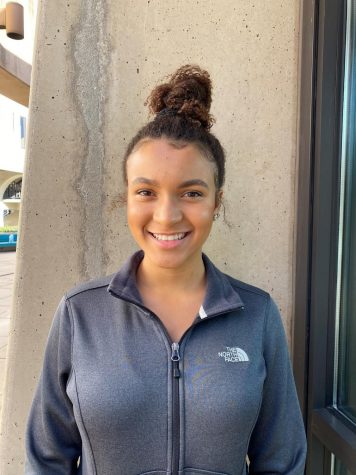
Kiyenna Ellison, sophomore psychology major
“To me, taking pride in all of the history and black excellence, how we’ve overcome challenges, what we’ve done to overcome them, and taking pride in being unified as a community, specifically in the black community is black pride.
Overall my experience has been pretty good, I really appreciate how we have the BRC and black resources to turn to whenever we need or want because it builds a strong sense of community and family. I think being at a (predominantly white institution) it is really important that we have those resources as it creates a more welcoming environment for us. I’ve been to ASU, the Student African American Sisterhood. I’ve been to the BRC a couple times. I was in the Harambe Program my freshman year and every experience that I had went to or been a part of was pretty open and welcoming.”
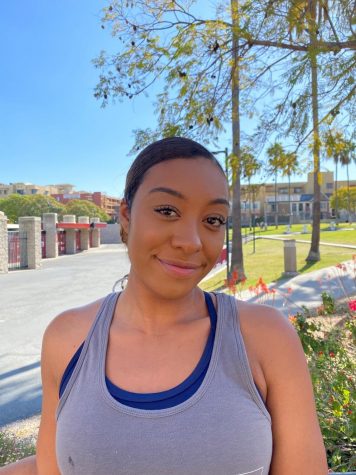
Dahlia Whitlock, junior interdisciplinary studies major
“Black pride just means being happy, content, and joyful about where you are and who you came from, the past or the present. I know some of us don’t necessarily know our african heritage, but no matter if you don’t know exactly where you came from, I think it’s important just knowing that it’s a beautiful heritage. I think it’s also just being proud of who we are right now and I think it’s about cohesiveness, like trying to build each other up instead of tearing each other down. Black pride is just being proud of who you are and not conforming to what other cultural standards are.
The black community at (SDSU) is a very large community, it’s bigger than I thought. When I first came here my roommates and I went to the ASU meetings. Through ASU I was able to meet a lot of people. Somebody always knows somebody. When it comes to the black community compared to the rest of SDSU, I feel like there isn’t any direct conflict, but obviously the BRC has been vandalized and you know, sometimes you can definitely feel that you’re the minority in classes.
I will say though that I’ve had really great experiences with meeting a whole bunch of people, I’ve met some of my best friends. There’s also a lot of black counselors, that’s what a lot of people don’t know. My academic counselor is black, and then also, Dr. Martin, she is the head of the biology department and she works with a lot of science students. She’s also the head of the Black Student Science Organization. I feel like there’s a lot of resources we don’t know about as well.”
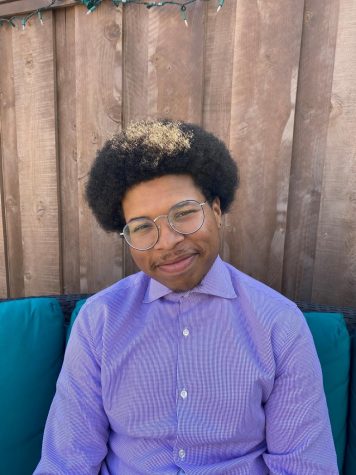
Miles Watkins, first year public administration graduate student
“When I think about black pride, I think about being dynamic as a person and not holding that back. A lot of the times when you are the ‘only’ in a classroom of any race or culture, or gender or sexuality you kind of have to mute certain parts of yourself in order to assimilate to the culture that’s around you. I think black pride and just pride in general, is being as dynamic as you are all the time and not turning it off simply because you walk into a different room.
For my experience here, all my professors care about me. I’ve had fun in all my classes, I love the BRC, I think this is the best part of it. I also like it because not a lot of folks are actually here during the day. Like, there are spaces on campus where you feel as though you’re around folks but without feeling as though you’re in a group of folks. I feel like that is a really cool thing, like a lot of folks come to campus and they have their group of friends. But, I think a lot of times on campus having a place where you can be by yourself, but around others so you’re not alone is good for your mental health, and I think this campus is very good at that. There’s always people studying, laying around, that’s just the culture of the campus, and as a black student I very much enjoy that. Ultimately, no matter what race you are, I feel like you just have to talk to people. I think that’s the hardest thing is when you’re like 3% of campus, you have to know about other people and how they operate in order for you to get the full understanding and how to operate on your campus.”






